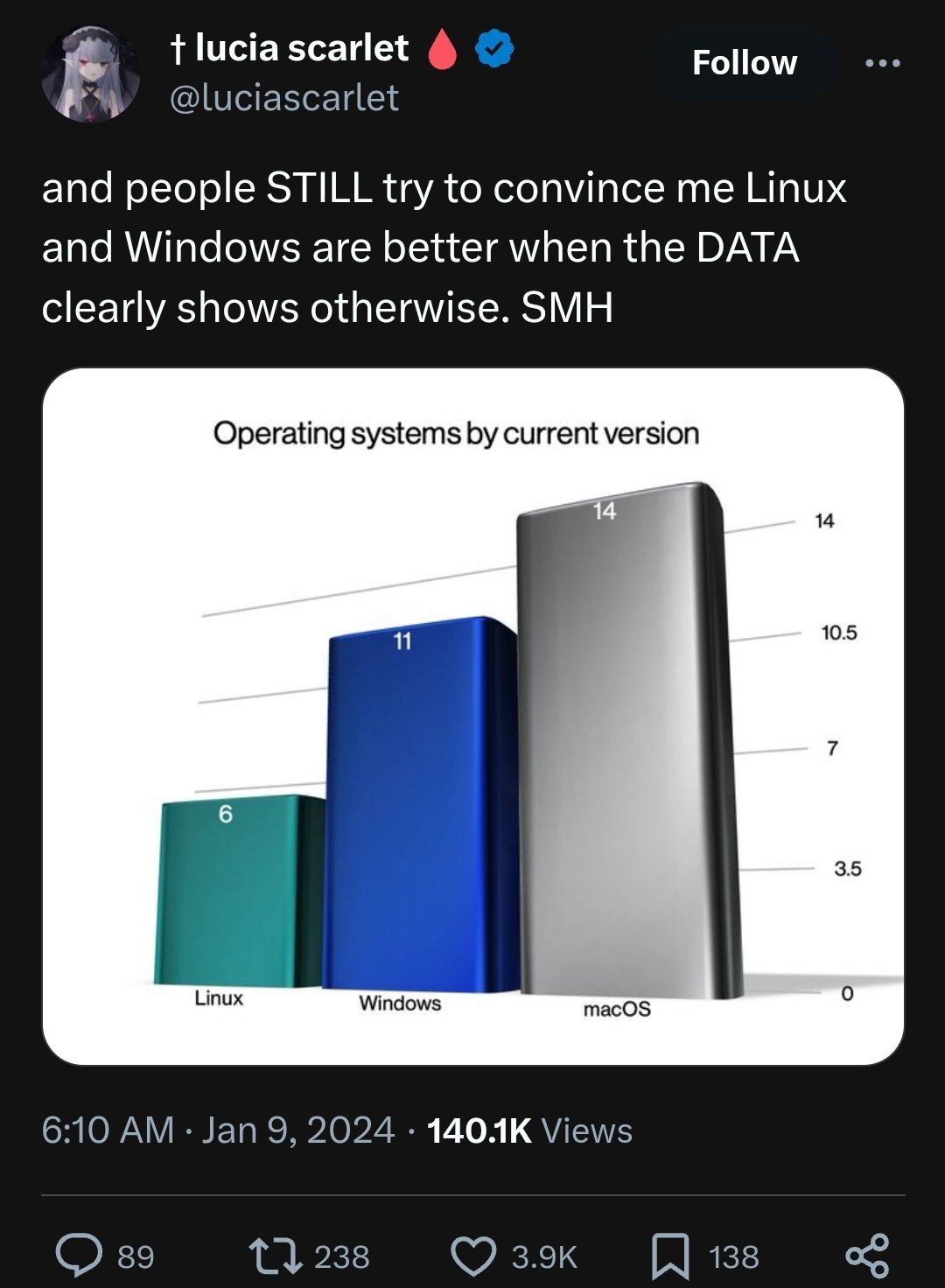this post was submitted on 09 Jan 2024
1085 points (94.6% liked)
Linux
58961 readers
883 users here now
From Wikipedia, the free encyclopedia
Linux is a family of open source Unix-like operating systems based on the Linux kernel, an operating system kernel first released on September 17, 1991 by Linus Torvalds. Linux is typically packaged in a Linux distribution (or distro for short).
Distributions include the Linux kernel and supporting system software and libraries, many of which are provided by the GNU Project. Many Linux distributions use the word "Linux" in their name, but the Free Software Foundation uses the name GNU/Linux to emphasize the importance of GNU software, causing some controversy.
Rules
- Posts must be relevant to operating systems running the Linux kernel. GNU/Linux or otherwise.
- No misinformation
- No NSFW content
- No hate speech, bigotry, etc
Related Communities
Community icon by Alpár-Etele Méder, licensed under CC BY 3.0
founded 6 years ago
MODERATORS
you are viewing a single comment's thread
view the rest of the comments
view the rest of the comments

but wouldnt lower numbers mean no one needed to fix & revamp a working OS?
higher numbers mean more fuckups than needed to be fixed until it was so broken there was no longer a way to code you way out, had to start right from the start!
no it just means the OS is abandoned obviously, don't you know that any library with no commits in the last 20 minutes is not worth using /s
It really depends on what versioning means for the project. If we are talking about semantic versioning then a lower number only means there haven't been many breaking changes over time. Or that a lot of broken stuff has been kept that way because it would break compatibility.